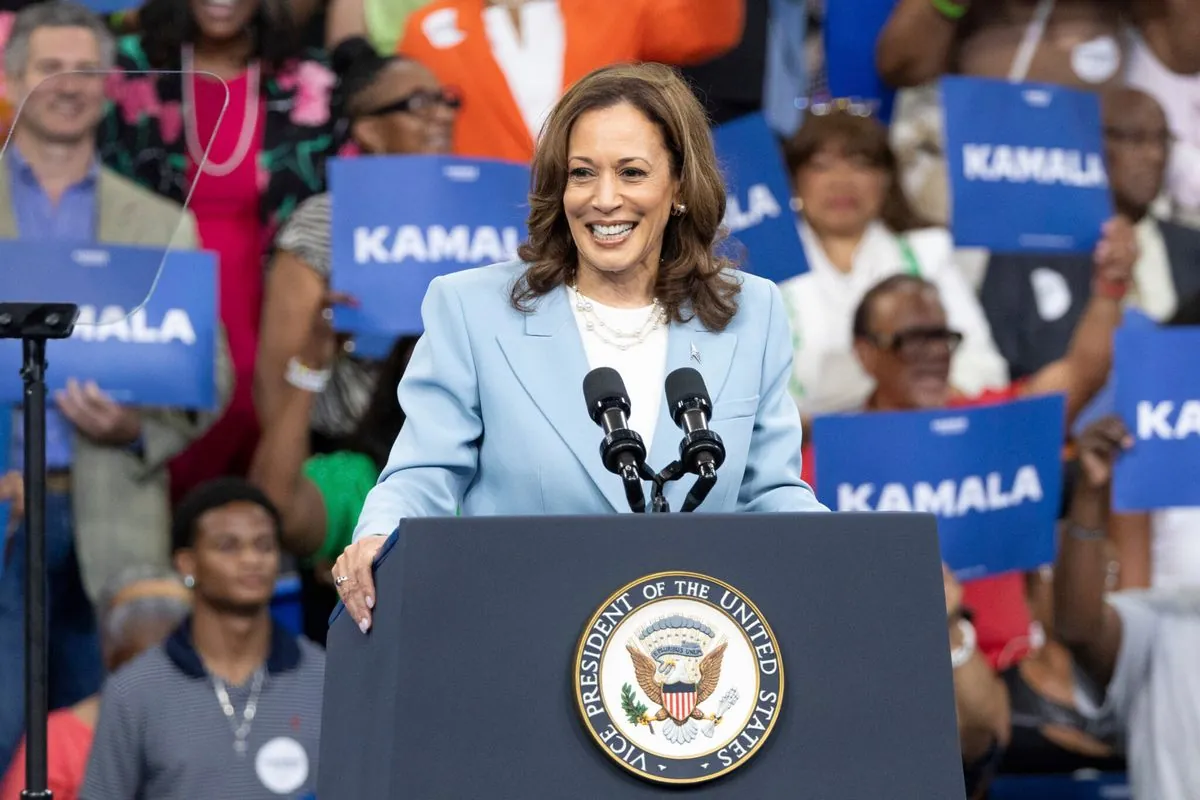Kamala Harris is poised to make history as she accepts the Democratic Party's presidential nomination, becoming the first Black and South Asian woman to lead a major presidential ticket. This milestone, occurring 32 years after Carol Moseley Braun became the first African American woman elected to the United States Senate, marks a significant moment in American politics.
Four trailblazing Black women in politics shared their perspectives on Harris's candidacy with The Washington Post. These women, who have each broken barriers in their own right, view Harris's campaign as a turning point for the United States and a cultural milestone for women.
Carol Moseley Braun, 77, former U.S. senator from Illinois, recounted her journey into politics, which began with a protest to protect bobolink bird habitats in Chicago's Jackson Park. Moseley Braun's political career led her to become the first African American woman elected to the U.S. Senate in 1992. She briefly ran for president in 2004, facing challenges that Harris may now be better equipped to handle.
"Sexism is even more ingrained in our culture than racism. Issues of race and gender come together in a different way than just race, or just gender, it's called misogynoir. It's more difficult to navigate."
Moseley Braun expressed concern about potential racist and sexist attacks against Harris, introducing the concept of "misogynoir," a term coined by Moya Bailey in 2010 to describe the specific form of misogyny experienced by Black women.
London Breed, 50, Mayor of San Francisco, credits Harris for inspiring her political career. Breed, who became the first African American woman to serve as Mayor of San Francisco in 2018, shared her experience of witnessing Barack Obama's presidential campaign announcement in 2007. She emphasized Harris's qualifications, urging her to "be herself and show the country what she's made of."
Shirley Franklin, 79, former mayor of Atlanta, reflected on her journey from community organizing to becoming the first African American woman to serve as mayor of a major Southern city in 2002. Franklin stressed the importance of maintaining public trust and accessibility during her tenure. She advised Harris to focus on the issues and not take personal attacks to heart.
Jennette Bradley, 71, former lieutenant governor of Ohio, shared her experiences as a trailblazer in multiple political positions. Bradley, who became the first African American woman to serve as Lieutenant Governor in the United States in 2003, emphasized the significance of visibility for aspiring young women in politics.
As Harris prepares to accept the nomination, these women's stories highlight the progress made and the challenges that remain in American politics. Their experiences underscore the historic nature of Harris's candidacy and its potential impact on future generations of women in leadership roles.
